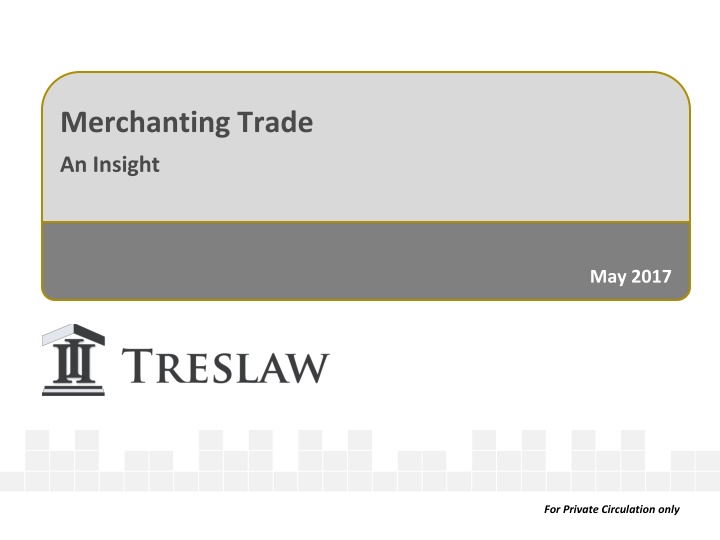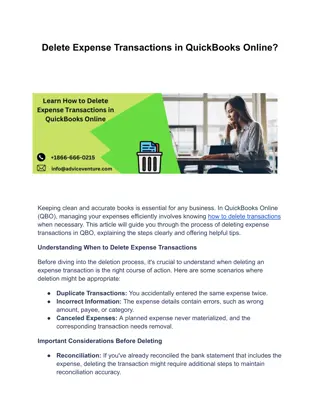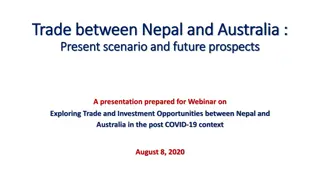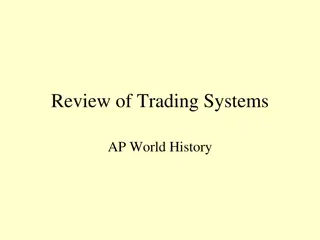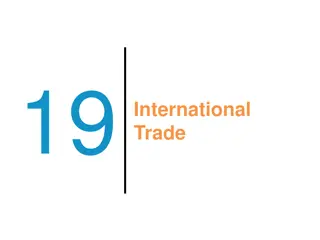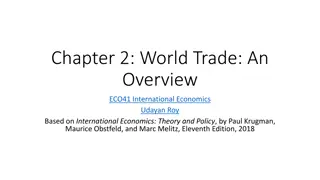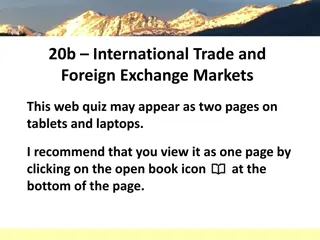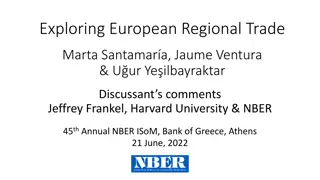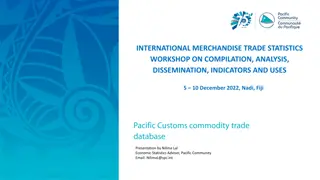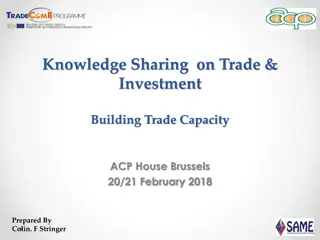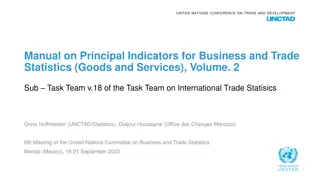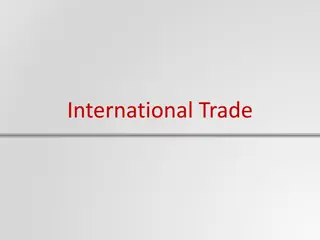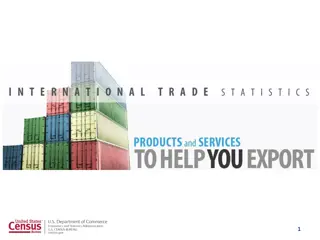Insights into Merchanting Trade for International Transactions
Merchanting trade involves the shipment of goods from one foreign country to another foreign country with the involvement of an Indian intermediary. This concept promotes international trade and is governed by specific guidelines issued by RBI. The transaction must meet certain conditions to be classified as merchanting trade, including restrictions on entering the Importing Country's DTA and adhering to export/import regulations. The AD Bank manages both legs of the transaction, ensuring genuine trade activities and reporting any defaults. Merchanting trade transactions should result in reasonable profits and maintain the integrity of goods being traded.
Download Presentation

Please find below an Image/Link to download the presentation.
The content on the website is provided AS IS for your information and personal use only. It may not be sold, licensed, or shared on other websites without obtaining consent from the author.If you encounter any issues during the download, it is possible that the publisher has removed the file from their server.
You are allowed to download the files provided on this website for personal or commercial use, subject to the condition that they are used lawfully. All files are the property of their respective owners.
The content on the website is provided AS IS for your information and personal use only. It may not be sold, licensed, or shared on other websites without obtaining consent from the author.
E N D
Presentation Transcript
Merchanting Trade An Insight May 2017 For Private Circulation only
Merchanting Trade Merchanting Trade concept was introduced to promote international trade In simple terms, Merchanting trade transaction is one which involves shipment of goods from one foreign country to another foreign country involving an Indian Intermediary RBI has issued a Circular No. 115 dated 28.03.2014 providing the revised guidelines with respect to Merchanting Trade Transactions For a trade to be classified as Merchanting trade following conditions should be satisfied: Goods acquired should not enter the DTA of the Importing Country viz. India (separate conditions provided for Nepal & Bhutan) The state of the goods should not undergo any transformation Goods are permitted for exports/ imports under the prevailing FTP as on the date of shipment and all the rules and regulations applicable to exports (except Export Declaration Form)/ imports (except Bill of Entry) are complied with The entire transaction is required to be completed within 9 months and there should not be any outlay of foreign exchange beyond four months May 2017 For Private Circulation only
Merchanting Trade Any advance payment for the import leg beyond USD 200,000/- per transaction is required to be paid against bank guarantee / Letter of Credit (LC) from an international bank of repute except where payment for export leg has been received in advance The Authorised Dealer (AD) Bank involved should manage both import and export legs of the transaction and should ensure one-to-one matching in case of each merchanting trade transaction Any default in any of the legs of the transaction would be reported by the AD to Regional Office of RBI on half yearly basis It is essential that the merchanting traders have to be genuine traders of goods and not mere financial intermediaries and that the transaction should result in reasonable profits to the trader There should be no change in substance of the goods which are being imported from one country and directly being exported to another country Merchanting trade transactions shall be reported on gross basis May 2017 For Private Circulation only
Merchanting Trade With respect to Merchanting Trade Transaction with Nepal and Bhutan, the condition that the goods should not enter the DTA cannot be complied with. Hence, reference may be drawn to the RBI Circular No. 97 dated 30.04.2015 whereby, considering that the two countries are landlocked, there is a facility of transit trade. As per the said mechanism, the goods are imported from third countries by Nepal and Bhutan through India under the cover of Customs Transit Declarations in terms of the Government of India Treaty of Transit with the two nations: Agreement on Trade Commerce and Transit between the Government of Republic of India and the Royal Government of Bhutan The Treaty of Transit between His Majest s Government of Nepal and the Government of Nepal It is clarified that goods consigned to the importers of Nepal and Bhutan from third countries under Merchanting trade from India would qualify as traffic-in-transit, if the goods are otherwise compliant with the provisions of the India-Nepal Treaty of Transit and Indo-Bhutan Treaty of Transit respectively. May 2017 For Private Circulation only
Merchanting Trade Process Flow Overseas importer receives the goods along with Indian Entity s invoice Overseas exporter s invoice to be replaced with invoice by Indian Entity Overseas Exporter Overseas Importer Goods Shipment Payment Payment Indian Trader Send the invoice raised by Indian Entity upon Overseas Importer - to Overseas Exporter May 2017 For Private Circulation only
Merchanting Trade Opportunities Indian Entity can record the sales as its own revenue Indian Entity would not be engaged in marketing support service whereby the commission received was exposed to Service tax levy The Transfer price between the overseas exporter to Indian Entity would not be known to overseas importer. However, it is essential that, the invoice raised by the overseas exporter to Indian Entity is replaced with the invoice raised by Indian Entity to overseas importer at the time of its shipment from the overseas exporter s location Indian Entity will save substantial costs with respect to transportation, insurance, warehousing and other logistics and customs related costs. Challenges Indian Entity would be required to strictly adhere to the formalities provided with respect to Merchanting Trade as provided in the preceding slides May 2017 For Private Circulation only
B-125 Sector 52 Noida - 201 301 Tel: +91 120 454 2972 Email: ankur.jain@treslaw.com
